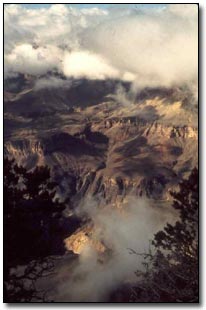|
Sooner or later, many of us will experience that sudden feeling of panic while
we're away from home. Where's the camera? (Okay, some people will ask the same
question at home, but that's a different problem.) A frantic search of your
vehicle, backpack or other likely locations confirms your fears. Your camera, and
the possibly priceless photos it contains, is missing.
In the best-case scenario, you can mentally retrace your steps and realize that
 you left it at a previous stop during the day. With a little luck, an honest
person has found your gear and is holding it for your return, or it's still
sitting on that big rock just off the trail. At the other end of the scale,
you've been the victim of the dark side, and some street criminal is already
hawking your goods in a back alley or the local pawn shop.
you left it at a previous stop during the day. With a little luck, an honest
person has found your gear and is holding it for your return, or it's still
sitting on that big rock just off the trail. At the other end of the scale,
you've been the victim of the dark side, and some street criminal is already
hawking your goods in a back alley or the local pawn shop.
In either case, there are some basic steps you can take to improve your chances
of recovering your possessions if they become AWOL. These are all common-sense
tips, so I'm not trying to insult your intelligence. We all know we should do
this, but too many of us simply put it off.
During thirty years of dealing with the public as a national park ranger, I was
sometimes amazed at the valuables people leave behind in parks. Many of those
items go unclaimed simply because the staff can't identify the owner. If you
haven't already done so, take these basic steps before you leave home again with
your camera:
1. Put your name and mailing address on your camera and in your gear bag. I'd
suggest you also include a contact phone number unless you're paranoid about
your unlisted number. A small label covered with some clear tape will do for
cameras themselves; an index or business card works for your pack or bag.
Make it easy for an honest finder to get in touch with you, or for you to
establish ownership when you go to claim the item.
2. Consider permanently etching your name or other unique information on the item
itself, to improve your chances of identifying and recovering stolen property.
3. Be able to identify your possessions. Let's be honest now, if you're far from
home and lose your camera, do you know the brand and model, much less the serial
number? This applies not only to your primary equipment, but also to accessories
like extra lenses. Jot that information down and carry it in a safe place, separate
 from your camera bag. The more details the better, especially if the item was
stolen and you're filing a police report.
from your camera bag. The more details the better, especially if the item was
stolen and you're filing a police report.
Picture this scenario: a worried tourist walks into a ranger or police station and
asks if a camera has been turned it. The first question: can you accurately
describe the item? Guess what, "It's black and about the size of my hand" won't get
you very far! Don't laugh, I've heard similar statements many times from obviously
well-educated visitors.
If you've failed to take the above advice but someone has found your camera and you
need to confirm ownership, digital camera owners may have another option. If you
can describe some of the photos stored on the camera, show the finder how to
preview your images and look for the ones you've mentioned. If you're really lucky,
maybe your own photo is one of those saved on the memory card!
4. If your gear doesn't turn up right away, file a lost and found or stolen report
with the proper authorities before you leave the area. An amazing number of
valuable items are turned in but go unclaimed simply because no one asked or filed
a report.
Finally, if you're the honest finder rather than the loser, be sure to complete a
"found" report when you hand the item over to the authorities, and get a copy for
your records. In many jurisdictions, unclaimed items can be returned to the finder
after a reasonable period of time has elapsed. Otherwise, that $800 camera may be
sold at auction. If the losers are both weepers and clueless, the finders might as
well be keepers!
"Written by a veteran park ranger, Hey Ranger! True Tales of Humor and Misadventure from America's National Parks takes a fun and informative look at the lighter side of outdoor mishaps and at life as a ranger. The book also provides some practical tips for safe trips to the Great Outdoors."
| 
